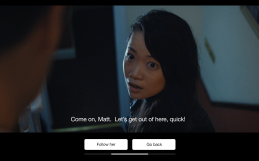Leadership Assessment at Its Best: Intro to Derivative Reporting
Fostering a flow-promoting environment is essential for maximizing team performance and employee satisfaction. FLIGBY, the innovative simulation game, was designed to equip decision-makers with the necessary skills to cultivate such environments. At the heart of FLIGBY’s unique approach is derivative reporting, which transforms how we assess and understand leadership behaviors. By analyzing gameplay from multiple perspectives without the need for repeated sessions, FLIGBY provides a comprehensive and efficient assessment process.
The Ultimate Leadership Assessment
At the heart of FLIGBY’s mission is the commitment to help individuals and organizations create flow-promoting environments that enhance performance and well-being. To achieve this, decision-makers—those with the power to influence their surroundings—must possess unique skills that enable them to cultivate such environments.
Recognizing this need, the creators of FLIGBY developed an experiential learning program specifically designed to help individuals develop these essential skills. This program is grounded in a comprehensive feedback system that provides insights into the user’s impact on their environment. Key performance indicators (KPIs) measure various outcomes, such as “profitability” and the “motivation levels” generated among colleagues and team members. Moreover, FLIGBY goes beyond traditional assessments by offering a realistic portrayal of player behavior during the simulation. This innovative approach positions FLIGBY as a sophisticated measurement system for tracking human behavior rather than merely a serious game.
The unique aspect of FLIGBY’s assessment lies in its revolutionary “derivative approach,” which allows for measuring behavior patterns from multiple perspectives. This capability enables a deeper understanding of how individual actions contribute to the overall dynamics of a flow-promoting environment.
The Architecture of FLIGBY’s Game-Results Analytics
The FLIGBY project represents a groundbreaking interdisciplinary initiative combining insights from psychology, game design, narrative design, and information technology. This collaborative effort was spearheaded by a team of experts, including renowned psychologist Prof. Mihaly Csikszentmihalyi, best known for his work on the concept of “Flow.” Under his leadership, the project aimed to create a comprehensive assessment system that evaluates individual skills and fosters a deeper understanding of complex leadership competencies.
Prof. Csikszentmihalyi envisioned an innovative assessment framework that operates on the principle of building blocks, akin to how one constructs with LEGO bricks. The 29 essential people skills identified through extensive research and gameplay analysis are at the foundation of this system. These skills are crucial components that can be combined and weighted to form more sophisticated competencies, such as “Fast Learning” and “Perseverance.” This modular approach allows for a flexible and nuanced assessment of leadership qualities, enabling players to see how their basic skills contribute to their overall leadership effectiveness.
The 29 basic people skills form the core of FLIGBY’s assessment universe, serving as a vital toolset for decision-makers aiming to create a motivating and engaging environment where flow can occur, driving both personal fulfillment and organizational achievement.
The assessment mechanism itself is designed around the interactive nature of the gameplay, where players make a series of multiple-choice decisions. This method is standard in the realm of interactive movies and online simulations, providing a familiar and engaging way for users to interact with the content. By analyzing players’ choices, FLIGBY can derive meaningful insights into their leadership styles and capabilities, ultimately guiding them toward personal and professional growth.
Derivate Reporting by Skills Combinations
How do we define FLIGBY’s “derivative reporting approach”?
Derivative reporting refers to the process of analyzing and interpreting data derived from an original source—in this case, the values of the 29 essential people skills FLIGBY tests and measures directly.
By deriving these primary skill values and regrouping them into complex competencies critical in modern leadership contexts, FLIGBY allows a more nuanced understanding of player behaviors.
The power of derivative reporting lies in its ability to utilize the data collected during the initial gameplay to produce additional (derivative) reports. This means players do not have to replay the game to gain new insights into their behavior and performance. Instead, FLIGBY can extract valuable information from the existing gameplay, enabling a deeper analysis of decision-making patterns, emotional responses, and leadership styles.
Top Three Benefits of Derivative Reporting
- Effectiveness – One of the most innovative features of the derivative approach is that it significantly enhances the effectiveness of the assessment process. By analyzing players’ behavior from multiple perspectives, FLIGBY can generate a variety of assessments without the need for additional gameplay sessions.
- Holistic Perspective – By examining behavior from various angles—such as teamwork, problem-solving, and adaptability—FLIGBY provides a detailed and nuanced view of individual performance. This holistic perspective allows decision-makers to identify strengths and areas for improvement more accurately, fostering targeted skill development and enhancing overall effectiveness in creating flow-promoting environments.
- Personalized Development – The detailed analysis from derivative reports helps identify specific strengths and areas for improvement, allowing for customized skill development and targeted training or coaching.
In summary, FLIGBY’s derivative reporting not only highlights the synergy between various disciplines but also emphasizes the importance of foundational skills in constructing complex leadership competencies. This innovative approach sets the stage for a deeper exploration of leadership in today’s dynamic and often unpredictable business environment.





